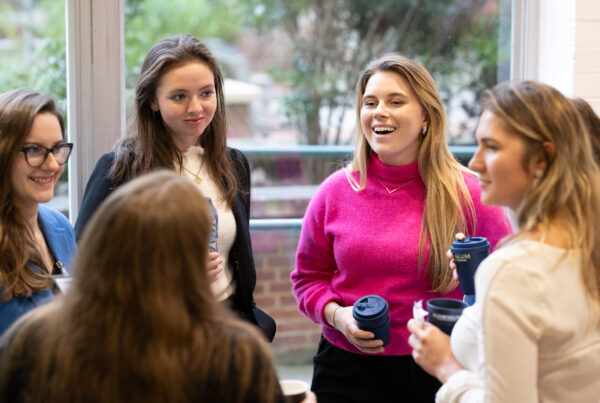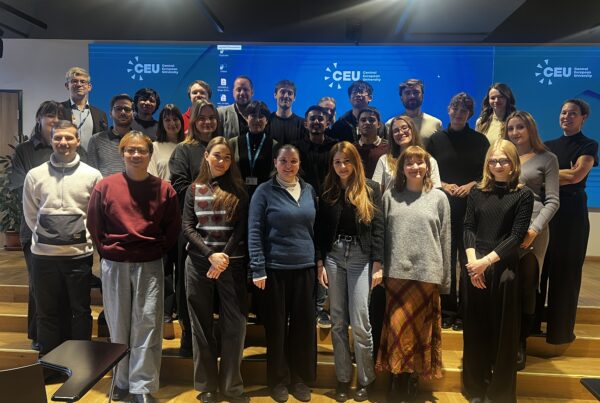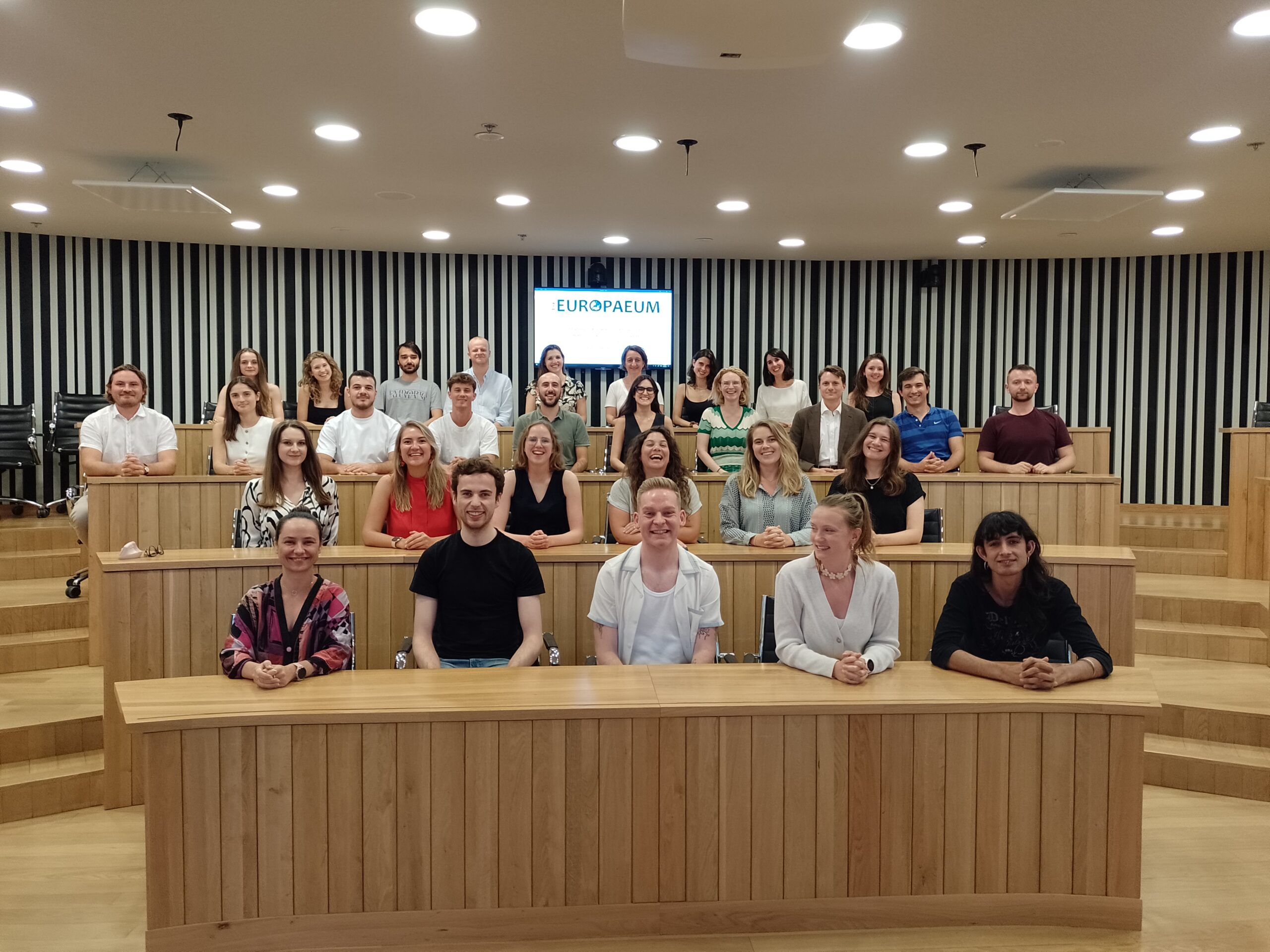
What more poignant place to consider the state of democracy in Europe than the capital of ‘Europe’s last dictator’? In late August the Europaeum Scholars Programme partnered with the Central European University’s Democracy Institute to explore several of the challenges European democracy faces and many of the tools that can be used to make democracy more robust. Panels combined the perspectives of academics from CEU with practitioners from NGOs and policy experts from think tanks.
With polarization often cited as a growing problem, Professor Andreas Schedler (CEU) encouraged us to apply the concept with more precision. Rather than mistakenly use it to describe ordinary political conflicts, he encouraged us to reserve it for extreme instances that endanger the democratic system. Serbia, in which democratic backsliding has been occurring in recent years, represents one such polarized society, at least at the top level of political discourse, as Sofija Todorović (Youth Initiative for Human Rights) outlined. Yet she also pointed to a disparity between the weaponization of polarizing issues by political actors with the generally harmonious discourses at grassroots level.
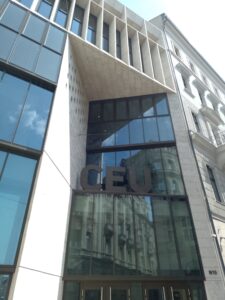
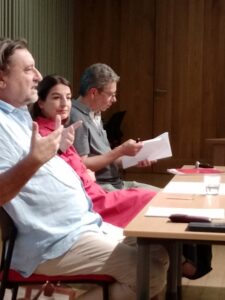
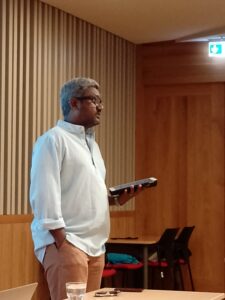
Why do we talk about a ‘rule of law crisis’ and not a ‘democratic crisis’? That was a key theme of Professor Renata Uitz (Royal Holloway / CEU)’s talk, which put the rule of law infringements in central and eastern Europe in broader context and argued that one reason why it’s easier to talk about a crisis in rule of law is because it is easier to translate into enforcement mechanisms than democracy. Ms Márta Pardavi focused on the work of the Hungarian Helsinki Committee and the strategies they adopt both locally and international to protect basic rights.
Our panel on tackling autocracy drew on the expertise of Professor András Bozóki (CEU) and Ms Zsuzsanna Szelényi (CEU). Combining academic research and practical experience in opposition politics, they masterfully described the scale of the problem and some of the ways in which, both in the 1990s and 2010s, individuals and groups have tried to stem autocratic tendencies. In line with the ethical focus of the Programme, the Scholars also undertook a discursive exercise that examined different types of political corruption and whether current enforcement and prevention mechanisms are sufficient to prevent them.
A second theme throughout the module was how to build greater democratic resilience. Mr Roy Virah-Sawmy presented some key areas of work of the European Partnership for Democracy and highlighted the importance of civil society organizations in advocating for specific policies that protect democracy (e.g. some aspects of tech regulation), suggesting that they provide an important bulwark when civil society space is being questioned. A different perspective on technology and policy was given by Dr Graham Wetherall-Grujić (Digital Technologies) who underlined the benefits of participatory platforms such as Decidim and the potential of big data to inform policy. Mr Robert Bjarnason reviewed the ways in which AI can be used to enhance online participatory platforms and policy making focusing on the ‘Policy Synth’ developed by the Citizens Foundation.
The role of civil society organizations also came to the fore in our panel on how to manage the transition necessary to fight the climate crisis in a democratically- sound way. Saha Balaganesh (Democratic Society) outlined the governance challenges, the importance of NGO-private partnerships, and the need for stronger legal frameworks for citizen participation. The work of Demnet in this area, outlined by Evá Bördös, highlights how NGOs can use tools such as citizen assemblies to demonstrate democracy in action to citizens on issues such as the green deal even in regions where democracy is under threat. How effectively can Citizens’ Assemblies work at the European level? This was the question that Dr Andrey Demidov (Bertlesmann Stiftung) addressed outlining recent research into the effectiveness and challenges of Citizens’ Assemblies in the EU and what might be done to improve them as they look likely to be institutionalized. A different perspective on what it means to embrace citizen participation was provided by Ms Susanna Tommila who told the Scholars about the ways in which the City of Espoo embeds participation and consultation across all areas of policy.
After two days of in-depth discussion, the focus of our module then shifted towards the Scholars’ own policy projects. Dr Marko Prelec (Crisi Group) shared insider insights into the policy process and several key techniques of policy analysis that the Scholars will take into their assessments of their chosen policy areas moving forward. By the end of the module all four groups have a clearly defined area that they are investigating; having completed literature reviews and initial surveys of the field, they will soon to be moving on to more in-depth analysis of the problems and discussions with practitioners.
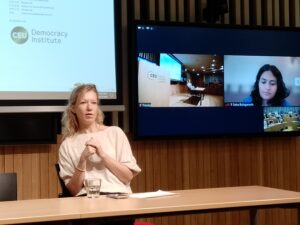
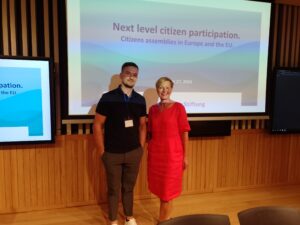
What the Scholars say
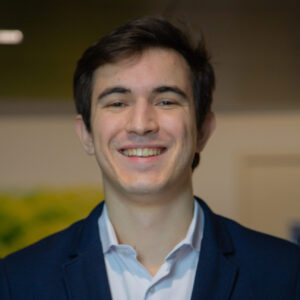
Amós del Castillo Petidier (Universidad Complutense de Madrid)
Working on the group projects is one of the aspects that makes the Scholars Programme both competitive and enjoyable. By the end of the third module in Budapest, the group dynamics have been consolidated. At this stage, we are defining the key elements of our plan for the group project in preparation for the next module in Krakow, where we will present our research question and outline the project plan.
The selection of the broad theme for our project illustrates how much progress we have already made. Despite coming from diverse backgrounds and presenting very different initial proposals, we successfully developed strategies to reach compromises and generate ideas that are both competitive and original. Our guiding principle was to treat all proposals as belonging to the entire group. In the end, we identified two promising areas: improving EU policy monitoring systems or raising awareness of the benefits of urban farming within the EU. After evaluating the feasibility, attractiveness, potential impact, and originality of each idea, we decided to focus on the EU’s role in promoting urban farming.
So far, it has been a very enriching experience. The advantage of working in an interdisciplinary team lies not only in the diverse ways of approaching a problem but also in the variety of working methods. Watching a group of political scientists, philosophers, historians, and lawyers collaborate and share their skills to reach a common goal is impressive. The atmosphere is very enjoyable, and rather than distracting us, it actually makes us more efficient. Everyone is highly motivated. Without a doubt, the group project is one of the strongest features of the Scholars Programme.

